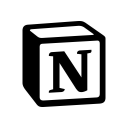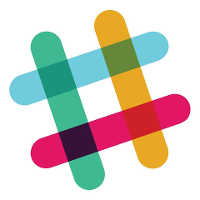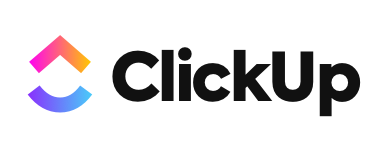How I Grew My Fintech Startup To $4.5M ARR [With A 40% QoQ Growth]
Hi, I’m Alexey, a serial entrepreneur who has a strong drive and a burning passion to help make people’s lives easier.
I love coding, product management, and UX. I also find myself thriving in that intersection between technology and entrepreneurship. As a result, I built a career in product development and software engineering for over 15 years.
Now, I am the CEO and founder of Tofu, a fintech startup that helps self-employed professionals to succeed and save time by providing them with an all-in-one business assistant that takes care of their back-office processes, such as invoicing, expense management, and taxes.
I am proud to say that Tofu grew 40% QoQ in the past two quarters and reached $4.5 million in ARR.

What's your backstory and how did you come up with the idea?
From a young age, I was deeply fascinated by computers, which led me to pursue programming and eventually enroll in one of the country's most prestigious universities.
Everything changed when I attended a startup conference, and it hit me — I could combine my love for coding with my entrepreneurial spark to build products that people would truly enjoy using. Knowing that the startup world held incredible success stories with the potential for significant financial gains boosted my motivation even more. That revelation inspired me, and my first venture was an application for a national social media platform, which surprisingly gained 600K users within just two weeks.
Following that success, in 2014, I co-founded a company focused on creating B2C products for car owners. The company took off, and over six years, we gathered an impressive user base of over 15 million people. However, I wanted to explore new possibilities and further simplify people's everyday tasks. In 2015, I decided to start a company offering innovative solutions in online faxing and business applications.
That's what led me to start Tofu, a comprehensive solutions platform for invoicing, expense tracking, and tax calculation, which aims to empower self-employed individuals by providing them with user-friendly and efficient tools for their back-office processes. My journey in entrepreneurship has been driven by my passion for coding and the desire to create products that make people's lives easier and more enjoyable.
Take us through the process of building the first version of your product.
When building the first version of our product, we followed a minimalistic approach, focusing on essential features to ensure user-friendliness. Back in 2017, we created a prototype, which was a very simple app–essentially, a form with a few fields. Once the user filled in those fields, an invoice was sent. Our app gained some initial traction, however, we abandoned it because it didn't integrate well with our company's primary focus at that time.
A year and a half ago, we saw great potential and decided to revive the concept, putting it into a new context with a fresh team. Our team currently consists of a product manager, a designer, two iOS developers, two backend developers, and a QA engineer. We also have a five-person marketing team and a seven-person back office team. In total, the Tofu team now consists of 20 people.
This time, the product, which was initially centered around invoicing, thrived right away. As a result, we expanded its functionalities, creating a hub that now includes income-tracking, tax calculation, and payment processing tools.
As for our development stack, for the client side, we developed a native iOS app. For backend development, we used dot.net. We also used Google Cloud as our cloud platform.
Throughout the development process, we heavily relied on data-driven decision-making. Our skilled analysts carefully calculated short-term and long-term metrics, which served as the basis for setting goals and outperforming our competitors.
One of Tofu’s competitive advantages is a user-friendly interface all thanks to our UX design which was a top priority in creating the product. We aimed to design an intuitive interface, allowing users to accomplish tasks effortlessly with a simple tap. Instead of overwhelming the product with numerous features, we took a focused approach, prioritizing high-quality and targeted functionalities.
First version/new version:


Describe the process of launching the business.
Since we already had a previous version of the application, this streamlined our launch and saved us time as we had a foundation to build upon. The first thing we did was leverage what we already had. We conducted user interviews with the existing users, many of whom came to the app organically during its initial launch.
These interviews were often spontaneous, as we were seeking to understand who these users were. Through this process, we identified our target audience as self-employed individuals, particularly those providing services. This valuable insight became the cornerstone of our business strategy and allowed us to build around their needs and preferences.
Despite catering primarily to business clients, our customer acquisition channels are primarily focused on B2C strategies. We rely on mass marketing channels such as search engine marketing, display advertising, and organic growth to attract new customers.
Since launch, what has worked to attract and retain customers?
Our marketing team targets potential users through stores, search engines, and so on. We also actively share more about our product and connect with self-employed people who may not have thought about the necessity and convenience of an invoicing app yet, but we believe that, by showing them how our product works, we can get them to try our platform and make their lives easier.
In our application, users store a lot of information, which is used for tasks such as creating invoices. The more information that we store in our platform, the higher the cost of a potential switch to another app is for the customer, so it is more challenging for them to opt for an alternative solution. This high switching cost becomes one of the key factors that contribute to customer retention.
Instead of providing a one-time solution, we offer an ongoing and comprehensive solution to our customers. Our platform aims to be an integral part of their workflow and processes, addressing their needs continuously. By offering ongoing value and becoming deeply integrated into our customers' operations, we enhance customer loyalty and encourage them to stay with our solution in the long term.
Instead of trying to improve a skill that doesn't come naturally to you, it's better to focus on what you enjoy and are passionate about.
How are you doing today and what does the future look like?
Currently, we have surpassed 1M app downloads and we are focused on expanding our ecosystem and integrating advanced analytical strategies and AI capabilities. Our main objective right now is to offer payment solutions. Our goal is to offer the best solution for self-employed individuals to accept payments conveniently on the go.
To achieve this, we are taking an approach that prioritizes user experience and adoption. We are integrating the most popular existing payment methods, including P2P transfers, card payments, and cash. While other big players in the market promote their own payment systems, we are concentrating on providing a seamless experience for our users, supporting the payment methods that they are already familiar with.
By offering a wide range of payment options and ensuring a smooth user experience, we aim to convert users who are still using outdated methods like cash payments to faster, more secure, and more convenient alternatives. Currently, we are rolling out our integration with Stripe to accept online card payments on Tofu Invoices, and we have more integrations planned for the end of the year, including support for Tap to Pay on iPhone.
Through starting the business, have you learned anything particularly helpful or advantageous?
One of the most significant insights I gained was the importance of building and leading a strong team. As someone who naturally preferred working independently, I initially struggled with the idea of collaborating with others and relying on a team to achieve success. However, I soon realized that having a capable and diverse team is essential for scaling and sustaining a successful venture.
Making the shift from being a solo operator to becoming a team player was challenging, particularly when it came to hiring individuals who could complement my skill set and bring their expertise to the table. It required a considerable adjustment in my mindset and approach to working with others. Learning to delegate tasks effectively and trust my team members to handle important responsibilities was crucial in achieving better outcomes.
In the past, encountering competitors used to trigger anxiety in me, but now I've come to realize the importance of redirecting our focus from external factors to our internal strengths. I hold onto a meaningful phrase from my university days, which deeply resonates with me - "A person competes not with competitors, but with himself." Rather than perceiving competitors as threats, I now see them as internal challenges that we must face and overcome.
This mindset shift allows me to view the business landscape as it is an aquarium, observing and understanding the dynamics with greater clarity. Embracing this perspective has empowered me to navigate challenges effectively and focus on continuously improving ourselves and our offerings, rather than getting bogged down by external pressures. It has been a game-changer in how I approach competition and has allowed me to leverage our internal strengths for success in the market.
What platform/tools do you use for your business?
As a founder, we rely on a carefully curated set of tools and platforms to streamline our business operations at every level. Notion has been instrumental in enhancing our team's productivity. OpenAI's ChatGPT primarily serves as a personal assistant for professional tasks. Slack serves as our central hub for real-time communication and swift file sharing. Asana (for back office) and ClickUp play vital roles in project planning and issue tracking, ensuring we stay agile and responsive.
What have been the most influential books, podcasts, or other resources?
The most influential resources for me are books. I find podcasts and articles to be more of a form of entertainment rather than having a long-lasting impact. Three books that have had a significant influence on me are "The Lean Startup" by Eric Ries, "The Goal: A Process of Ongoing Improvement" by Eliyahu M. Goldratt, and "Good to Great" by Jim Collins.
However, the book that has had the most profound impact on me in various aspects, including entrepreneurship, product development, and personal growth, is "Thinking, Fast and Slow" by Daniel Kahneman.
I also frequently use Blinkist, a platform that provides concise summaries of books. I read these summaries to get the main points of a book, and if I find a book particularly interesting, I dive deeper and read the entire book.
Conversations with people also have a significant influence on me. For example, when I conduct interviews with potential candidates for my company, I gain valuable insights. Engaging with individuals who think differently than I do stimulates me, and I start asking myself important questions.
Advice for other entrepreneurs who want to get started or are just starting out?
Seeking a great business partner is crucial, someone with whom you not only can solve business challenges but also share a deep connection. Having a partner you can trust and communicate openly with is invaluable. Networking is a powerful tool, and you should immerse yourself in entrepreneurial circles. Attend events, conferences, and meetups where you can connect with like-minded individuals. The contacts you build in these gatherings can prove to be incredibly helpful in the future.
I used to believe that any skill could be developed as long as you put in enough effort, but now I've adopted a more balanced approach. Instead of trying to improve a skill that doesn't come naturally to you, it's better to focus on what you enjoy and are passionate about. By doing what you love, you'll be more motivated to further enhance your abilities in that area.
For the skills that don't suit you, it's wise to hire people who excel in those areas. The world is diverse, and you will undoubtedly find something you're good at. It's easier to choose the right path than to force yourself into something that doesn't resonate with you and try to fix it.
Are you looking to hire for certain positions right now?
Yes, we are looking to hire a dynamic and creative Chief Marketing Officer to support the next stage of our growth journey.
Skills required:
- Significant experience in data-driven marketing and growth hacking.
- Proven track record of executing successful strategies for both paid and organic
mobile acquisition channels.
- Demonstrated ability to transform product features into compelling marketing
campaigns and driving product-led growth.
- Established ability to devise and implement marketing strategies that enhance
customer engagement and encourage repeat usage.
- Expertise in developing successful strategies for partnership and influencer marketing campaigns.
- Proven track record of effectively leading a cross-channel marketing team.
Where can we go to learn more?
If you have any questions or comments, drop a comment below!

Download the report and join our email newsletter packed with business ideas and money-making opportunities, backed by real-life case studies.

Download the report and join our email newsletter packed with business ideas and money-making opportunities, backed by real-life case studies.

Download the report and join our email newsletter packed with business ideas and money-making opportunities, backed by real-life case studies.

Download the report and join our email newsletter packed with business ideas and money-making opportunities, backed by real-life case studies.

Download the report and join our email newsletter packed with business ideas and money-making opportunities, backed by real-life case studies.

Download the report and join our email newsletter packed with business ideas and money-making opportunities, backed by real-life case studies.

Download the report and join our email newsletter packed with business ideas and money-making opportunities, backed by real-life case studies.

Download the report and join our email newsletter packed with business ideas and money-making opportunities, backed by real-life case studies.









